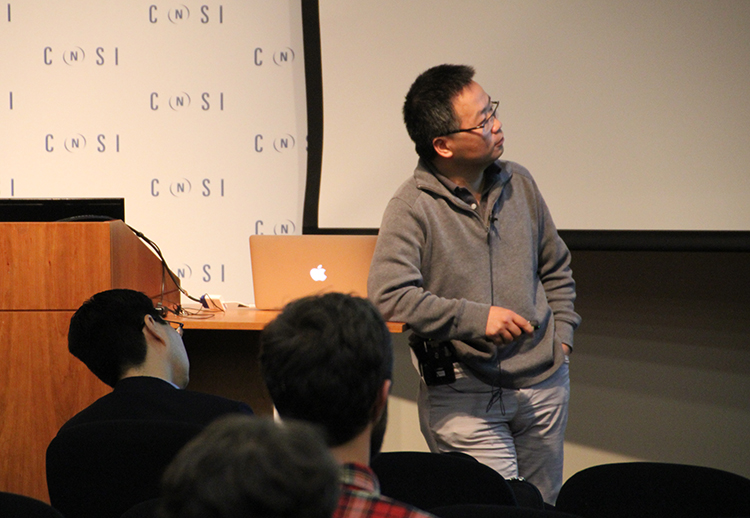
Sometimes the smallest tools are required to tackle the biggest problems. At the forefront of innovative research on regenerative medicine and cancer treatment, experts from the top research institutions in the greater Los Angeles area converged for the first-ever UCLA-USC-Caltech Nanotechnology and Nanomedicine Symposium on October 18.
The two-day symposium at UCLA was the culmination of two years of preparation and featured leading chemists, engineers, biologists and medical researchers, who shared insights about recent advances in the use of nanotechnology to advance regenerative medicine, solve medical problems and move towards new treatments for infectious diseases and cancer.
“It’s delightful that we have the collaboration across the institutions in Los Angeles, including Caltech, USC and UCLA, and other institutions such as City of Hope and Cedars have been part of this as well. I think we can have a great impact by working together,” said Randolph Hall, PhD, vice president of research at USC, who organized the event with UCLA’s Fuyu Tamanoi, PhD, and Caltech’s James Heath, PhD.
Mark Thompson, PhD, from the USC Dornsife College of Letters, Arts and Sciences and Chongwu Zhou, PhD, from the USC Viterbi School of Engineering teamed up to deliver a keynote address on the use of nanoribbon biosensor chips for cancer diagnosis.
Thompson and Zhou have pioneered a new way to build the chips that involves a revolutionary top-down fabrication scheme that allows for better control of the manufacturing process. The tiny indium oxide devices can detect the presence of biomarker CA-125 – a protein that shows up in elevated levels in the blood of individuals who have ovarian cancer.
Other presenters from USC included:
J. Andrew MacKay, PhD, assistant professor with a joint appointment with USC Pharmacy and USC Viterbi, who is working to improve outcomes for patients with cancer, liver disease and eye disease by fighting the dose-limiting side effects of potent drugs using protein polymer nanoparticles;
Bogdan Olenyuk, PhD, assistant professor of pharmacology and pharmaceutical sciences at the USC School of Pharmacy, who developed nanoparticles that target and then accumulate in tumors to allow for better imaging and drug treatment;
Richard W. Roberts, PhD., professor of chemistry and chemical engineering at USC Viterbi, who created synthetic peptides that can be used in the diagnosis and treatment of oral cancers;
Pin Wang, PhD, associate professor of chemical engineering at USC Viterbi, who engineered thick-walled nanoparticles that can deliver a controlled amount of an anticancer drug over a sustained period of time;
Travis Williams, PhD, associate professor of chemistry at USC Dornsife, who discovered a new technique to create high-contrast MRI images using nanoparticles that can combine and assemble themselves into structures under specific chemical conditions.
The sessions were led by faculty from USC and UCLA, including: MacKay; Sarah Hamm-Alvarez, PhD; Zibo Li, PhD; and Andrea Armani, PhD, who was recently named one of Popular Science’s “Brilliant 10” young researchers.
In addition, USC researchers were well-represented in the poster competition, and Pu Shi, a PhD candidate from USC Pharmacy, received the top honors for his poster about nanoparticles being used for the suppression of tumor growth.
